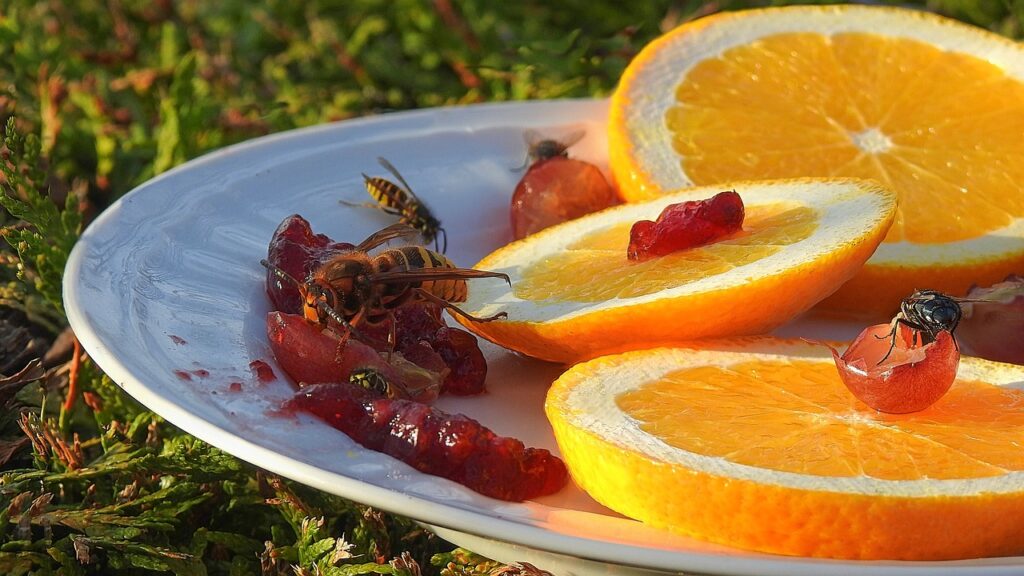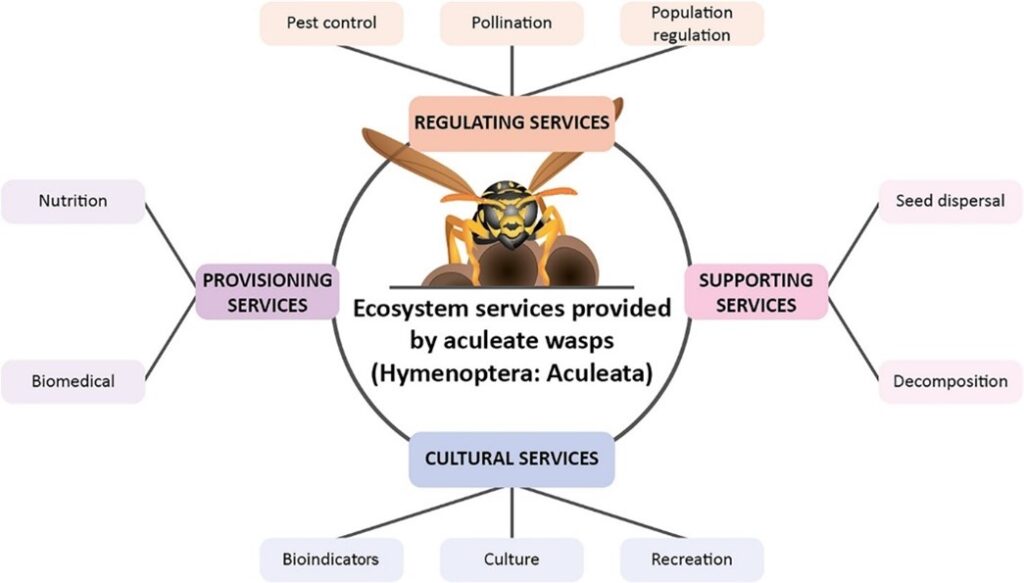
Yellowjackets often come to mind whenever a person hears the word wasp; evoking images of ruined picnics and carcasses floating in drinks. In a recent study comparing peoples attitudes toward wasps and bees, the top five wasp descriptors were: sting, annoying, pain, nest and dangerous. See: “Why we love bees and hate wasps”
However, the social wasp species, including the yellowjacket, represents just 1.5% of all wasp varieties. There are over 30,000 identified species; 98.5% of the wasp species are solitary non-stinging varieties. Wasps are incredibly important to the environment. They are predators of pest insects, pollinate plants, produce antibiotics in their venom, help disperse seeds and are a food source in many countries.
Learn more about the importance of wasps:
- Wasps Are a Gardener’s Friend – Univ. of Minn. Extension
- Wasps in the Garden Ecosystem – Wild Seed Project
- Ecosystem services provided by stinging wasps. Biological Reviews, First published: 29 April 2021, DOI: (10.1111/brv.12719)

From: Biological Reviews, Ecosystem services provided by stinging wasps.
